-
Finding the Best Faucet for Your Remodel
If you are dissatisfied with the performance or appearance of your current water faucet, you may want to consider working with your plumber to install a brand new faucet for your home. By replacing your faucet, you will be able to select a model that matches with your bathroom design and that is friendly to the environment. A kitchen remodeler serving Jacksonville will be able to answer all of your questions about selecting the right faucet for your needs. After your kitchen remodel has been completed and you have chosen a new faucet for your space, you can expect to save significantly on your monthly water bills. To take a tour of some tips for selecting a new faucet for your kitchen or bathroom remodel, check out this video.
-
Myths About Tankless Water Heaters
If you need new water heater installation near Jacksonville, you may be wondering which type to choose. To ensure that you select the best option for your home and needs, consider these common tankless water heater myths before you make a decision.
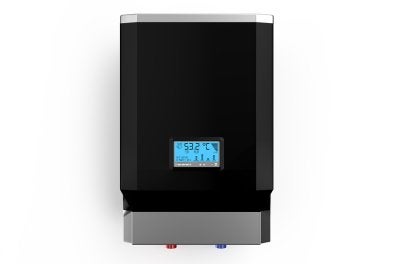
Myth #1: There is little difference between tankless water heaters.
Over the years, these water heaters have benefited from technological advances that make some of them more reliable, cost-effective, or easy to install. Because some brands have adopted newer equipment while others haven’t, not all tankless water heaters are of the same quality. You’ll find that some brands boast greater reliability and firepower, while others will lack in the areas of product support and upkeep costs.
Myth #2: You can switch to a tankless water heater without an inspection or permit.
While this is true for some areas, it’s not a blanket truth. Your jurisdiction may require both a permit and an inspection before you install your new water heater. To find out more, talk to a local and reputable HVAC company to learn about the requirements for changing to a tankless water heater.
Myth #3: Making the switch to a tankless water heater is simple.
The fact that changing your water heater type is not so easy to accomplish may have something to do with the truth behind myth #2. Unfortunately, most homes were installed with conventional water heaters without any plans to accommodate a tankless system. Your home’s gas line, meter, and piping must be of sufficient size to handle the greater requirements of a tankless water heater. A successful installation is essential for ensuring optimal performance from a tankless water heater.
Myth # 4: It’s expensive to operate a tankless water heater.
Tankless water heaters can potentially save you money on your energy costs. Conventional water heaters must keep a sizeable container of water heated throughout the day and night, even if it isn’t in use. Tankless water heaters warm water only on demand, potentially saving you money on your monthly energy bill.
-
Finding the Right Water Temperature for Your Tankless Heater
If you’re interested in installing a tankless water heater near Jacksonville , you should contact a plumber for professional water heater installation. When installed and operated correctly, a tankless water heater can save you money on your water bills and energy bills. Tankless water heaters provide instant hot water only when you need it, rather than storing hot water in a tank like traditional water heaters.
Your on-demand water heater will only heat water as needed, thus eliminating the risk of heat loss and water evaporation. Tankless water heaters are available as natural gas, propane, solar, and electric water heaters. Many tankless water heaters come with a remote control that allows you to easily change the set point temperature of the water heater.
Because your tankless water heater does not consume electricity or gas when water is not in demand, you can set the water temperature slightly higher than you would with a traditional water heater. The standard temperature for a tankless water heater is 120 degrees. This temperature allows you to add the right amount of cold water to your shower or tub to quickly and efficiently create the ideal bathing temperature.

-
How to Switch to a Tankless Water Heater
Have you been thinking about installing a tankless water heater in your home? There’s no better time to do it than right now. A plumber serving Jacksonville can take out your old standard water heater that is equipped with a large storage tank and replace it with a new energy-efficient tankless water heater that will save you money in the long run and deliver hot water to your home on demand. Check out how to make the switch to a tankless water heater below.

Hire a Licensed Plumber to Inspect Your Plumbing System
When you install a tankless water heater in your home, you will need to do more than just swap out your old water heater. You will need to prepare your entire plumbing system for your new water heater. In some cases, a plumber may decide that it would be more beneficial for you to install smaller tankless water heaters in each bathroom in your home as opposed to simply installing one main whole home tankless water heater. It all depends on how your individual home is set up.
Find the Tankless Water Heater That Is Right for Your Home
Once you have had a plumber take a look at your plumbing system, you should speak with him or her about which tankless water heater would be best for your home. Shop around and look at lots of different tankless water heaters until you find the one that works for your specific situation. It’s important to remember that, while most tankless water heaters will cost more than standard water heaters, your investment will pay off in the end in the form of dramatically lower energy bills.
Install Your New Tankless Water Heater With the Help of a Plumber
You should never attempt to install a tankless water heater on your own. If you don’t install it properly, it could pose a threat to both you and your home. Use a licensed plumber to install your new water heater, and you will typically be able to start using it within a matter of just hours.
-
Does Your Water Heater Need to Be Replaced?
Without your home’s hot water heater, there are many daily tasks that you won’t be able to complete. From taking a shower to washing your clothes and dishes, you need a functional water heater to survive, so you will need to call a plumber right away when your current water heater gives out. Eagerton Plumbing Co., Inc. can help you install a new water heater in Jacksonville whenever you need one.
There are certain signs that will indicate that your water heater is going to fail at any moment. For example, if you have discolored water coming out of the faucets in your home, it’s a sign that the sediment inside of your water heater’s tank has become dislodged as a result of a problem with it. Likewise, a leaky tank will show that it’s time to call the plumber for a new water heater. By keeping an eye out for these signs, you can replace your water heater before it completely fails on you. When you work with Eagerton Plumbing Co., Inc., we will act quickly to get a new water heater installed so that you aren’t left without hot water for an extended period of time.
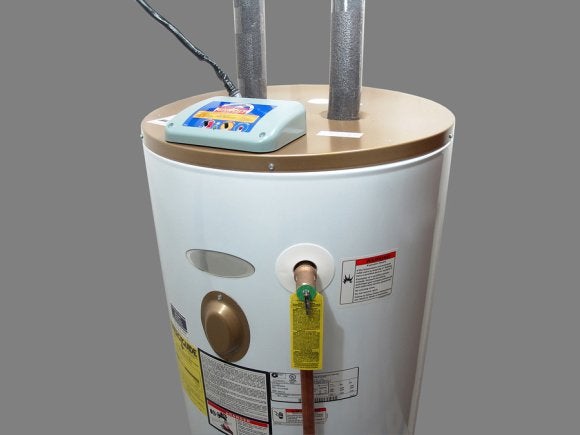
-
Save Money and the Environment at the Same Time
By now, you’re probably well aware of what it means to go green. As a homeowner, it’s sensible to make eco-friendly choices when it comes to your home. Not only are energy-efficient appliances and fixtures good for the environment, but they also can save you a lot of money on your monthly energy bills. Here are some good reasons to make environmentally conscious decisions regarding your home’s plumbing. For more information, contact Eagerton Plumbing in Jacksonville today.
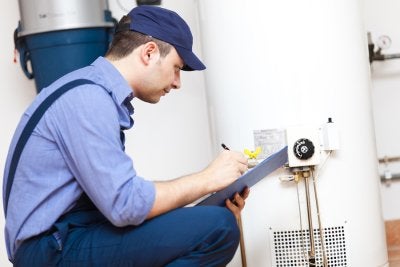
Upgrade Your Old Hot Water Heater
An appliance in the home that uses a lot of energy is your hot water heater. The most common type of water heater found in homes is a standard storage-tank model—a large cylindrical unit that houses a reservoir of heated water that’s constantly kept at a set temperature. Older storage-tank water heaters tend not to be as energy efficient as newer models, which are insulated and have better water-heating capabilities. If your current water heater has been running for 10 years or more, consider upgrading to an insulated storage-tank water heater, a solar-powered unit, or a tankless water heater.
Switch to Water-Saving Toilets and Bathroom Fixtures
Conventional toilets are water wasters—the amount of water used with each flush tends to be excessive and unnecessary. Energy-efficient toilets use water sparingly when flushed, and many offer innovative flushing technologies that can effectively accommodate both liquid and solid waste accordingly. If you’re planning a bathroom remodel, opt for a dual-flush toilet. Also, replace dated faucets and showerheads with fixtures that have aerating mechanisms. By adding air to water, aerators create the sensation of strong water pressure while using very little water.
Insulate Your Pipes
By insulating your home’s plumbing pipes, you can rest assured that your water is kept either warm during the cold months or cool during the summer for a longer period of time—lessening or eliminating the need to use more energy to heat or cool the water in your pipes.
-
Should You Switch to a Tankless Water Heater?
Should You Switch to a Tankless Water Heater?
Do you have a standard storage-tank water heater that’s on its way out? If so, you’re probably looking into having it replaced. But with so many options on the market today, which hot water heater is the right one for your home? You could choose to replace your old water heater with another storage-tank model, or you could take the opportunity to switch to a tankless water heater in Jacksonville . Here are some things to consider when making your decision to switch. When in doubt, consult with your local plumber.
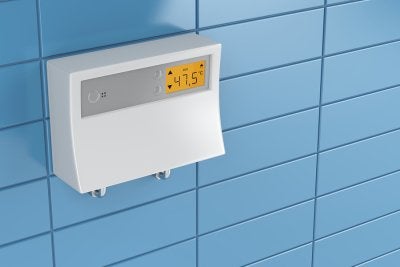
What a Tankless Water Heater Is
Like its name suggests, a tankless water heater does not have a storage tank that houses a reservoir of continuously heated water that is available for immediate use. This type of hot water heater is much smaller than its storage-tank cousin, and since it only heats water when needed, it can be relatively energy efficient when compared to a traditional model.
What You Should Take into Consideration
You shouldn’t be too hasty when making the decision to switch over from a standard storage-tank water heater to a tankless one. Be sure to do as much research on tankless water heaters as you can, and talk with a plumbing professional—that way, you can be sure that a tankless water heater is right for you. Before you decide, you should figure out how much hot water you and your family actually use on a daily basis. For example, if you have a large family that requires the use of a lot of heat water, a tankless system may not be a good fit for your home.
The Pros and Cons of Tankless Water Heaters
There are some notable pros and cons regarding tankless water heaters. Pros: Tankless systems don’t take up as much space as standard hot water heaters, don’t need to keep reservoirs of continuously heated water, and may lower your monthly energy bills if you install the right model. Cons: Tankless water heaters cost more upfront to purchase and install than traditional models.
-
Replace a Bad Water Heater Fitting to Prevent a Disaster
A corroded water heater fitting is a disaster waiting to happen. Luckily, replacing a rusted, ready-to-burst fitting is a relatively easy job that you can do yourself. Watch this video to learn how. Of course you can also call your plumber to perform this job for you if you don’t have the tools or the confidence to change out an old fitting yourself.
If you’re concerned about your old water heater, schedule a visit from your Jacksonville plumber. Being proactive about water heater repair and replacement can save you a lot of time, a lot of frustration, and most importantly a lot of money in the long run. Look for a plumbing company that specializes in water heater repair, maintenance, and installation to get the best service and a recommendation you can trust.
-
Comparing Gas and Electric Water Heaters
If your water heater is kaput, you’ll want to buy a replacement unit as quickly as possible. However, considering the cost of a new water heater and how long you’ll be stuck with it, you’ll do yourself a real disservice if you don’t research your options prior to making a purchase. You might also consider buying a new water heater if your old one is nearing or past its expected life, as this can save you a lot of time and frustration later on. Either way, here are a few things to know about gas and electric water heaters so you can make the right decision for your home. Your Jacksonville water heater installation provider can answer any additional questions you have about buying a new water heater.
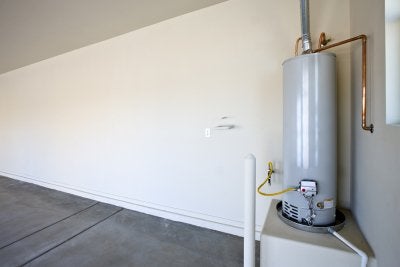
Cost
Gas and electric water heaters are similar in the initial purchase price, and as long as your plumber doesn’t need to make any retrofits the installation cost for gas and electric water heaters is also similar. However, there are other factors to consider to get a picture of the lifetime ownership costs of gas and electric water heaters. For example, electricity (as a utility) typically costs more than gas, which means electric water heaters can be more expensive to operate and cost more over the long run.
Energy Efficiency
Another important factor to consider when deciding between a gas or electric water heater is energy efficiency. The efficiency of gas and electric water heaters can be compared by their energy factors (EFs), a number between zero and one that relates to how much of each energy dollar results in heater water. A higher EF indicates higher efficiency and, as a result, lower utility bills and a lower lifetime cost of ownership.
Performance
You should also consider your hot water needs and compare them to the performance you can expect from either a gas or electric water heater. For example, if you run out of hot water quickly because different family members are showering, washing dishes, or doing laundry at the same time, consider a tankless gas water heater (also known as an on-demand water heater) that provides virtually instantaneous and unlimited hot water.
-
Factors to Consider when Choosing a New Water Heater
Choosing a new water heater for your home is a very important decision. The water heating system you choose for your home will not only affect your comfort but also your monthly energy bills. If you’re having trouble deciding which model is best for your needs, your Jacksonville water heater installation professional can help you sort through your options. Here are some important factors to consider when choosing a new water heater.
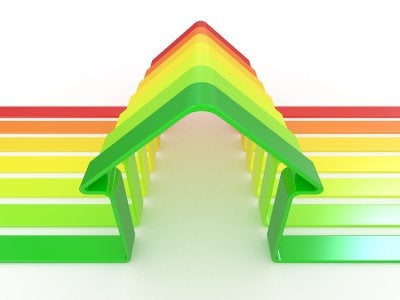
Fuel Type
When selecting a new water heater, it’s important to consider what fuel type you will use. The fuel type will not only affect the annual operation costs but also the water heater’s size and energy efficiency. Electric and natural gas/propane water heaters are the most widely available in the United States. Solar and geothermal energy are also used to fuel water heaters. Talk with your plumber or water heater replacement provider for more information about the different fuel types available.Energy Efficiency
Heating water accounts for approximately 15 percent of a home’s energy use. To maximize your energy savings, research high-efficiency water heaters and find out what factors are used to measure energy efficiency. Water-heating efficiency is measures by an Energy Factor (EF) rating—the higher the EF, the more efficient the water heater. Compare the performance and operating costs of different water heater models using the EnergyGuide label to estimate your annual operating costs and savings.Storage Capacity
The capacity of a water heater is an important consideration when investing in a new water heater. For tankless water heaters, you need to determine the flow rate and the temperature rise you’ll need for its application in your home (whole house or a remote application, for example). For storage water heaters, look at the water heater’s first hour rating and choose a model with a rating that matches your peak hour demand. Your Jacksonville water heater installation professional can help you estimate your required storage capacity.
RECENT POSTS
categories
- Uncategorized
- Water Heater Installation
- Tankless Water Heater
- Plumbing Services
- Bathroom Remodeling
- Hot Water Heater
- Plumber in Jacksonville
- Water Heater Repair
- Eagerton Plumbing
- Eco-Friendly Plumbing Repair
- Water Damage
- Plumbing Leak
- Sewer Line Repair
- Infographic
- Clogged Drains
- Kitchen and Bathroom Remodel
- Bathroom Plumbing
- Residential Plumbing Services
- Garbage Disposal
- Toilet Repair
- Water Heater Replacement
- Water Conservation
- Emergency Plumbing
- Commercial Plumbing Services
- Kitchen Design Inspiration
- Kitchen Remodel
- low-flow toilets
- Leaky Faucet
- Conserve Water
- Drain Pipes
- Kitchen Sinks
- Vessel Sink
- Plumbing Problems
- Water Leak
- Commercial Remodeling Contractors
- Drain Cleaning Services
